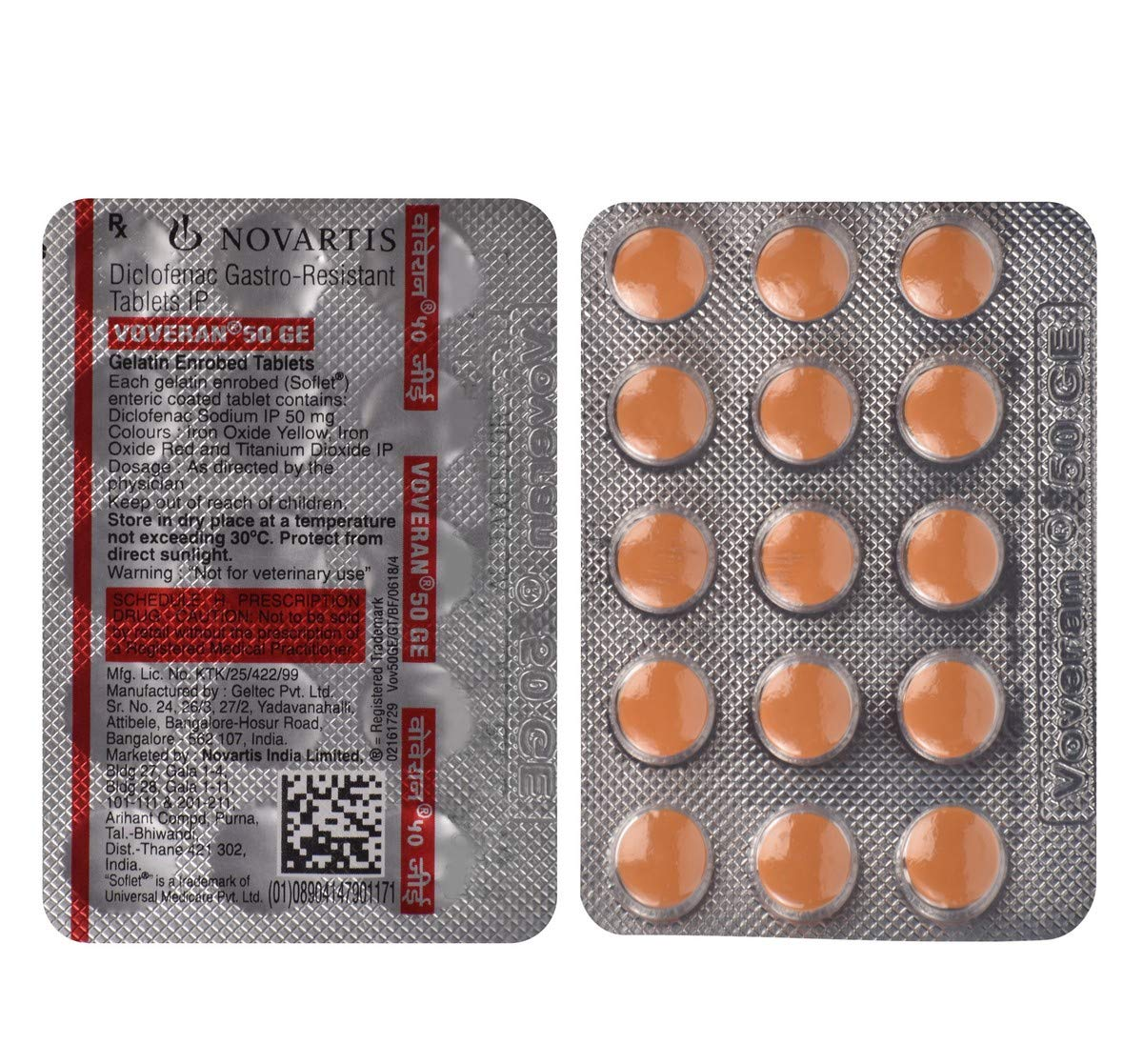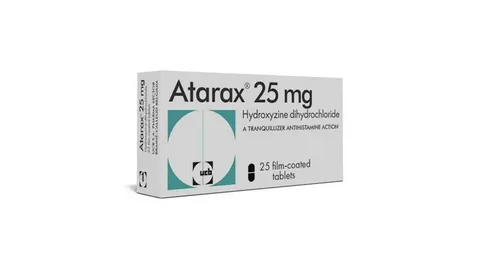Benefits
Voveran 50mg (diclofenac) offers several benefits for managing pain and inflammation:
- Pain Relief: It effectively reduces pain from conditions like arthritis, muscle injuries, and post-surgery recovery.
- Anti-inflammatory: It helps decrease swelling and inflammation, improving mobility in joint-related conditions like osteoarthritis and rheumatoid arthritis.
- Fever Reduction: Voveran can lower fever as part of its anti-inflammatory action.
- Improved Functionality: By easing pain and inflammation, it helps improve daily function and quality of life for individuals with chronic conditions.
- Quick Action: It provides fast relief for acute pain like dental or musculoskeletal discomfort.
Side effect
Voveran 50mg (diclofenac) can cause side effects, although not everyone experiences them. Common side effects include:
- Gastrointestinal issues: Upset stomach, nausea, indigestion, diarrhea, or constipation.
- Headache: Some users report headaches or dizziness.
- Skin reactions: Rash, itching, or redness.
- Fluid retention: Swelling in the ankles or feet.
- Liver and kidney problems: Rarely, it can affect liver or kidney function.
- Cardiovascular issues: Increased risk of heart attack or stroke, especially with long-term use.
- Allergic reactions: Symptoms like swelling or difficulty breathing (rare but serious).
Precautions
When using Voveran 50mg (diclofenac), it’s important to take the following precautions:
- Pre-existing conditions: Inform your doctor if you have a history of heart disease, high blood pressure, kidney or liver problems, gastrointestinal issues (like ulcers), or asthma.
- Long-term use: Avoid prolonged use without medical supervision, as it can increase the risk of cardiovascular events, kidney damage, or gastrointestinal bleeding.
- Allergies: Don’t use if you’re allergic to diclofenac or other NSAIDs (e.g., ibuprofen, aspirin).
- Pregnancy and breastfeeding: Avoid in the third trimester of pregnancy. Consult your doctor before using during early pregnancy or while breastfeeding.
- Other medications: Inform your doctor of any other medications you’re taking, particularly blood thinners, other NSAIDs, or diuretics, as they may interact with Voveran.
- Avoid alcohol: Alcohol can increase the risk of stomach irritation and bleeding.
Frequently asked question
What is Voveran 50mg used for?
Voveran 50mg is primarily used to relieve pain, inflammation, and swelling in conditions such as osteoarthritis, rheumatoid arthritis, musculoskeletal pain, post-surgery pain, and menstrual cramps.
How does Voveran 50mg work?
Voveran 50mg works by inhibiting the COX enzymes (COX-1 and COX-2), which are responsible for producing prostaglandins that cause pain and inflammation. By blocking these enzymes, it reduces pain, swelling, and fever.
How should I take Voveran 50mg?
Take Voveran 50mg tablets with water after meals to avoid stomach upset. Typically, it is taken 1-2 times a day, or as prescribed by your doctor. For topical gel, apply a thin layer to the affected area 2-4 times daily.
What are the common side effects of Voveran 50mg?
Common side effects include stomach upset, nausea, headache, dizziness, rash, and swelling. Rare side effects can include gastrointestinal bleeding, kidney or liver issues, and cardiovascular problems.
Are there any precautions I should take before using Voveran 50mg?
Before using Voveran, inform your doctor if you have heart disease, kidney or liver problems, asthma, or any gastrointestinal conditions. Avoid alcohol, prolonged use, and inform your doctor about any other medications you are taking.
Can I use Voveran 50mg during pregnancy?
Voveran should not be used during the third trimester of pregnancy. Consult your doctor before using it during the first or second trimester, or while breastfeeding.
Can I drink alcohol while using Voveran 50mg?
It is advised to avoid alcohol while taking Voveran, as it may increase the risk of stomach irritation and bleeding. Always consult your doctor before combining medications with alcohol.
Conclusion
Voveran 50mg is an effective medication for managing pain and inflammation in conditions like arthritis, muscle pain, and post-surgery recovery. While it provides significant relief, it’s important to follow dosing instructions and be aware of potential side effects, such as gastrointestinal issues and cardiovascular risks.
Always consult your healthcare provider before use, especially if you have pre-existing conditions, to ensure safe and effective treatment.







